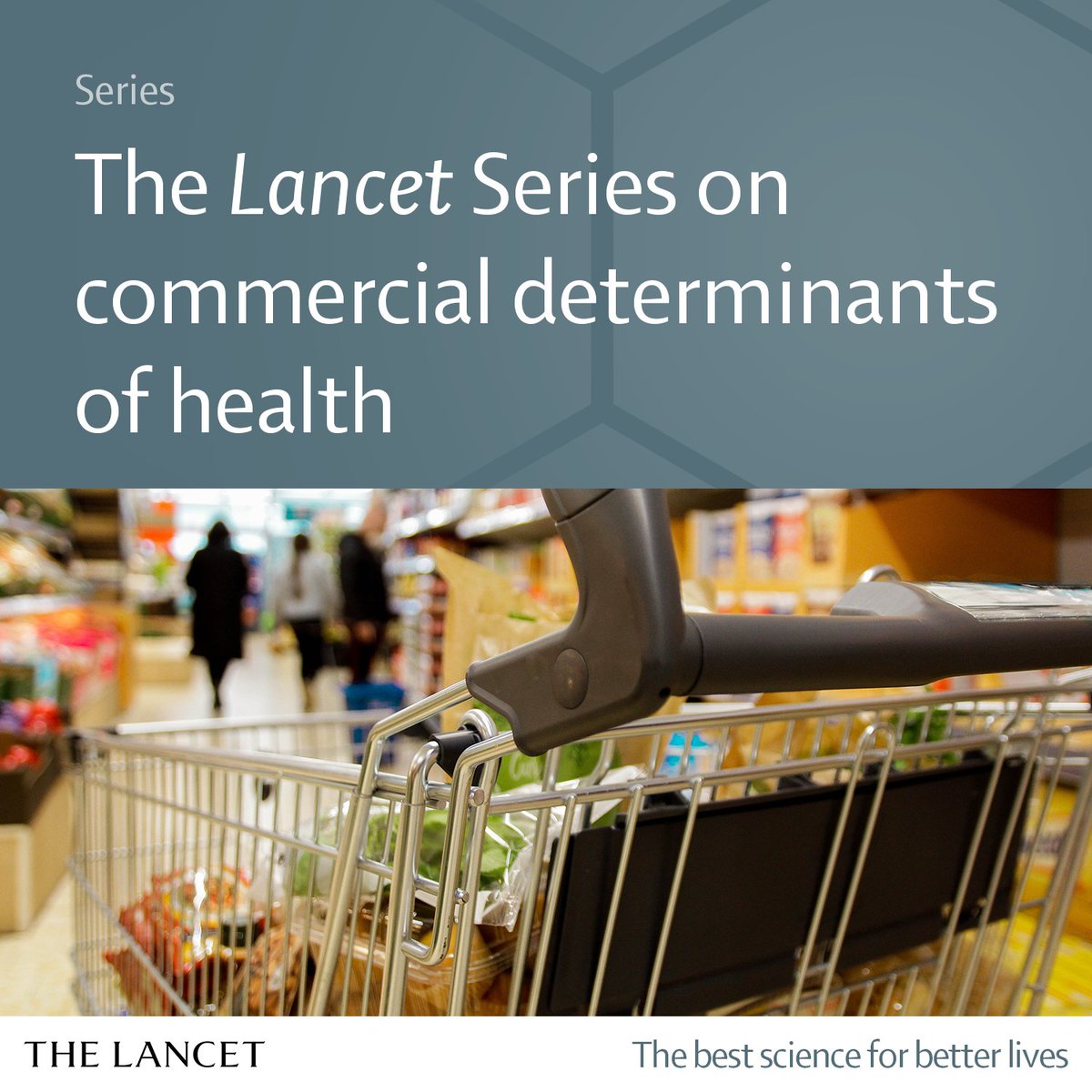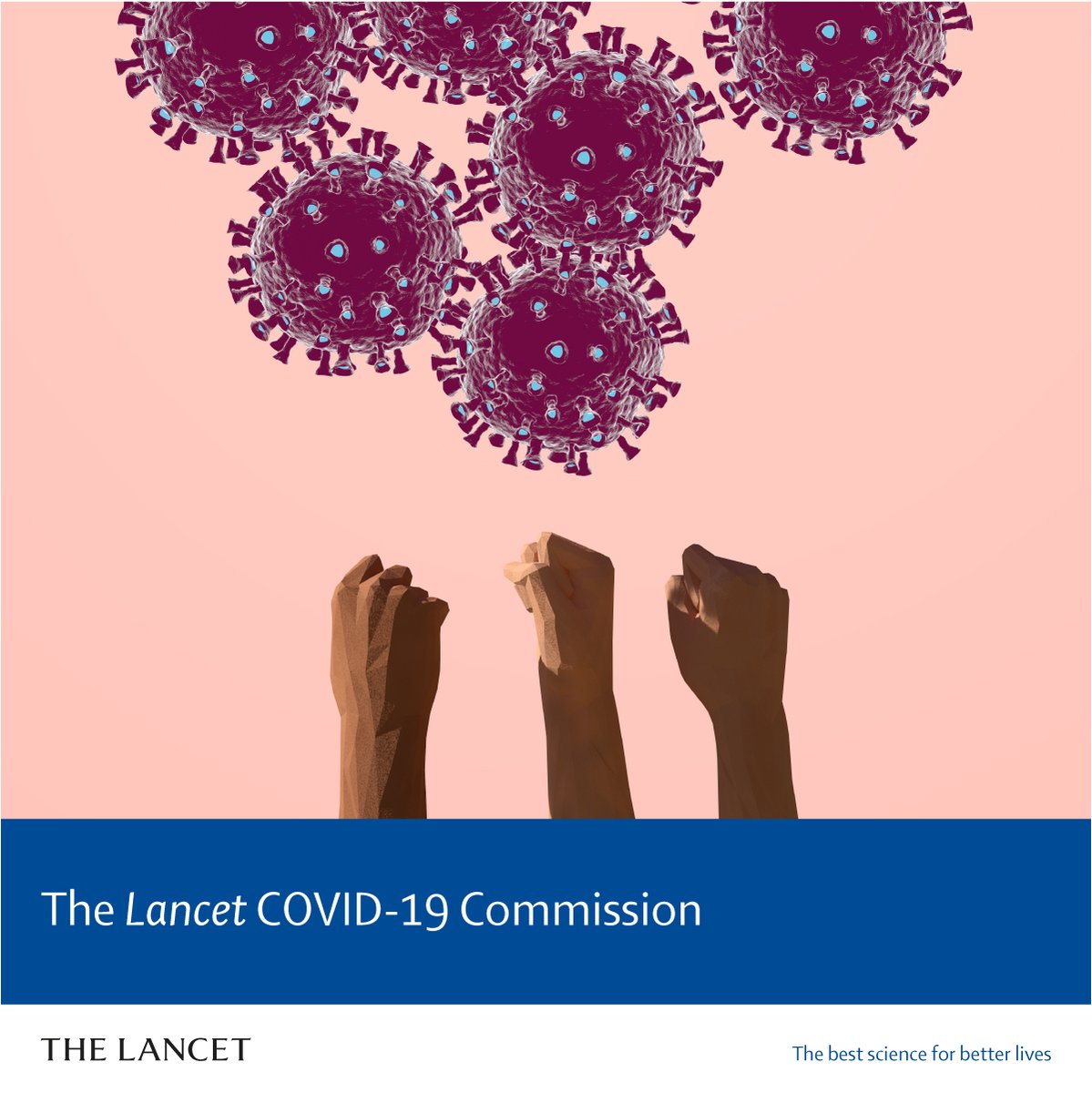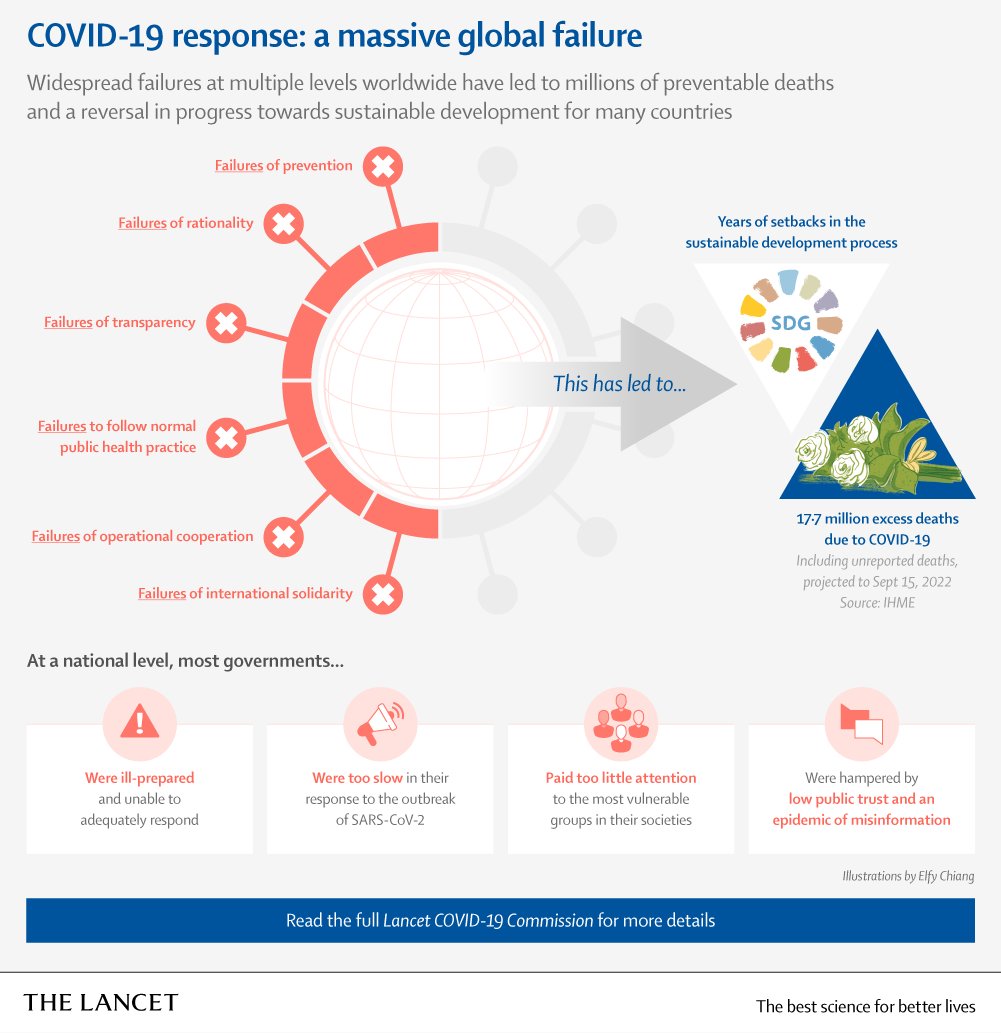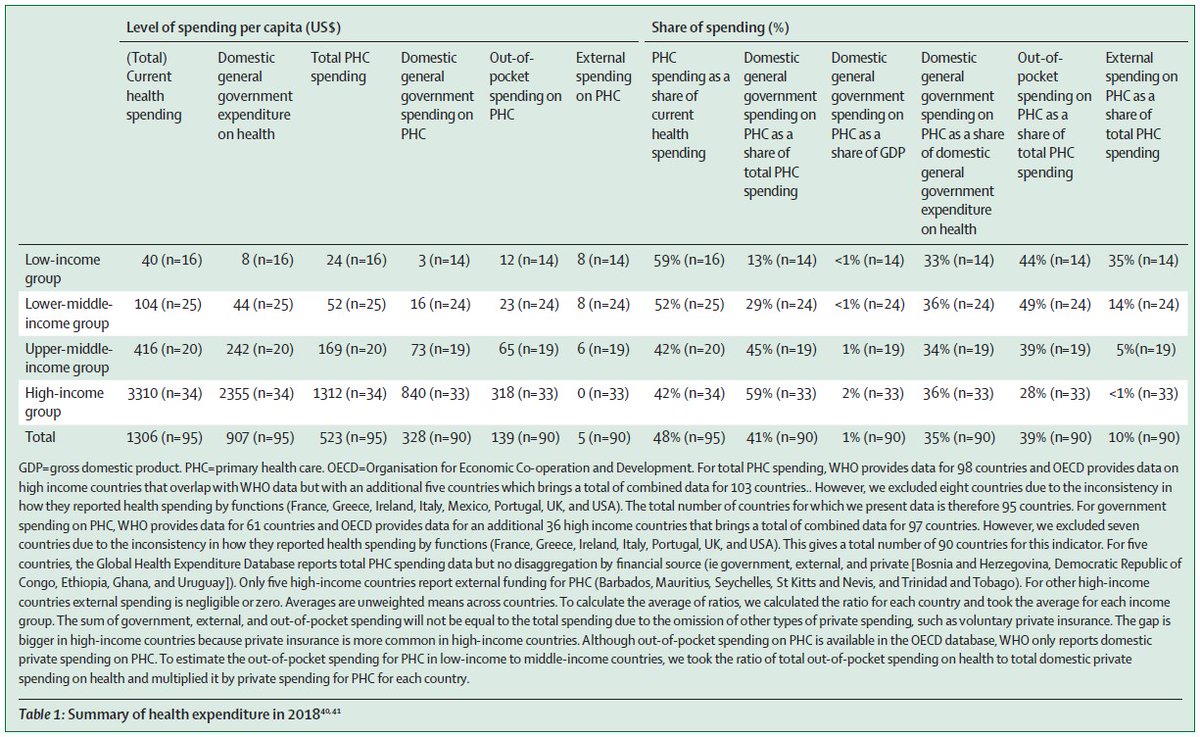NEW Health Policy—First implemented in China in February 2020, Fangcang shelters, large-scale temporary hospitals, are a novel concept. S Chen et al discuss the value of shelters as a component of national responses to the #COVID19 pandemic & beyond [1/5] hubs.ly/H0p95vN0 

As #COVID19 spreads globally, China has started to support other countries, such as Italy, Iran & Serbia, in developing Fangcang shelter hospitals adapted to their national contexts, & authors note that the USA, the UK and Spain are implementing similar measures [2/5] 
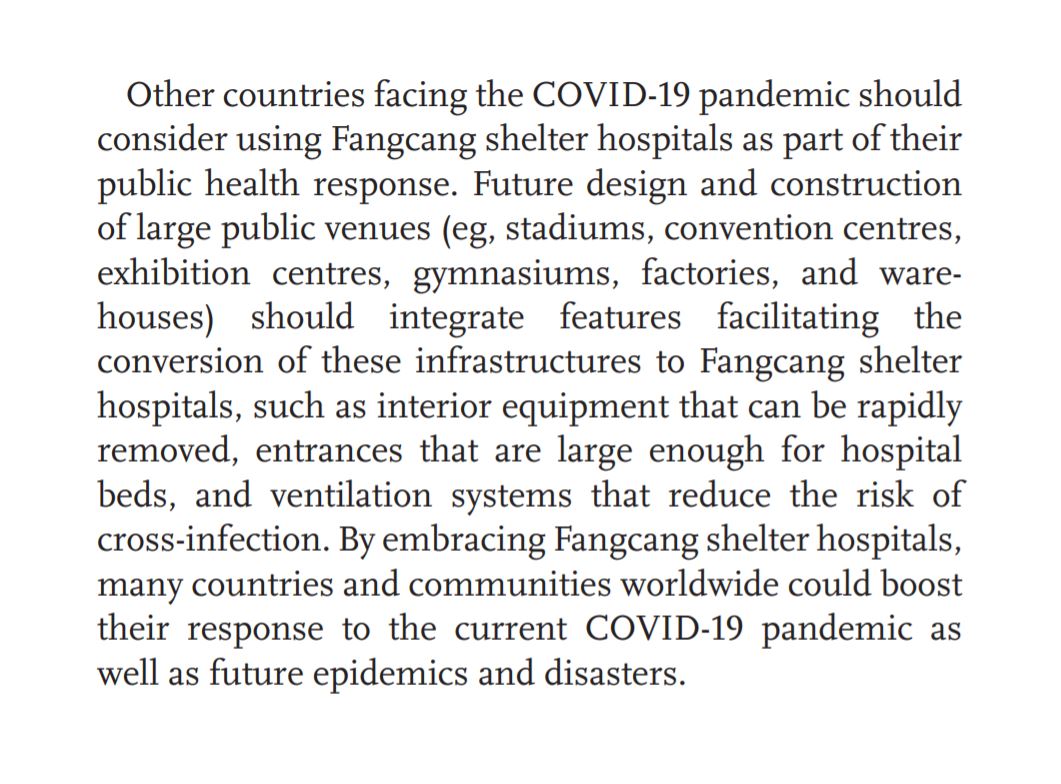
Following a shortage of beds, on Feb 5, Wuhan city opened 3 Fangcang shelter hospitals by converting exhibition centres & stadiums. Over the following weeks, Wuhan opened 13 additional shelter hospitals. Figure below shows progression of bed capacity & occupancy over time [3/5] 
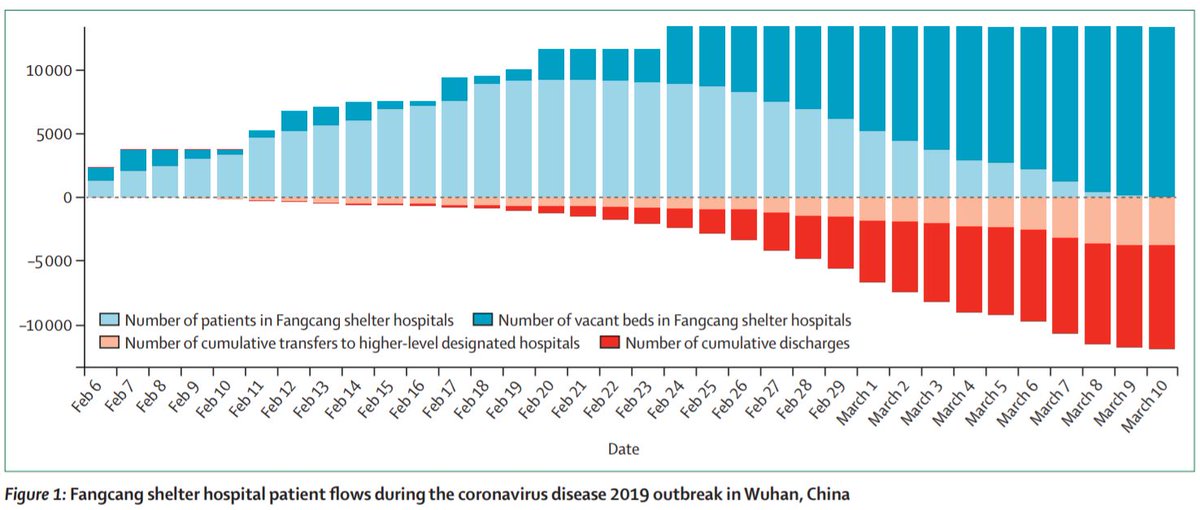
Built overnight, shelter hospitals provided isolation, triage, medical care, monitoring & referral, shelter, & social engagement. Authors note that Fangcang shelter hospitals have 3 characteristics that make them suited to public health emergencies, shown below [4/5] 
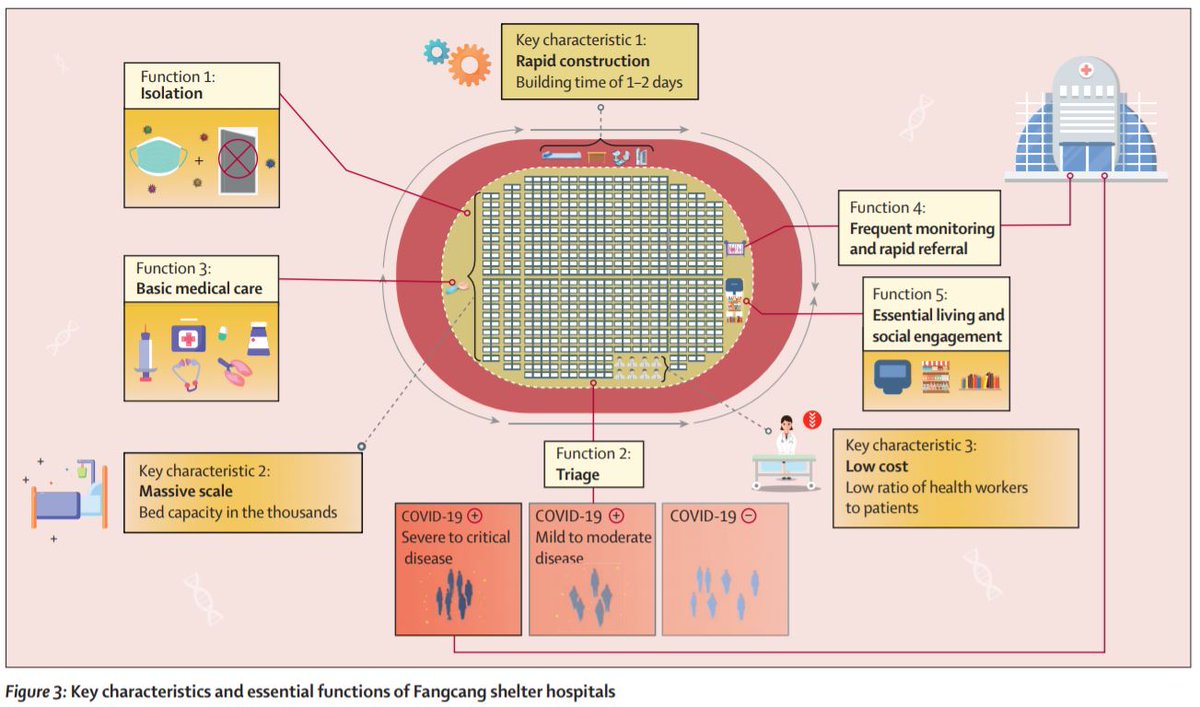
Authors note the Fangcang shelter hospitals were set up primarily to care for patients with mild to moderate #COVID19 symptoms. As the epidemic in Wuhan subsided, all hospitals were successively suspended, having cared for 12,000 patients. Table shows admission criteria [5/5] 

• • •
Missing some Tweet in this thread? You can try to
force a refresh



